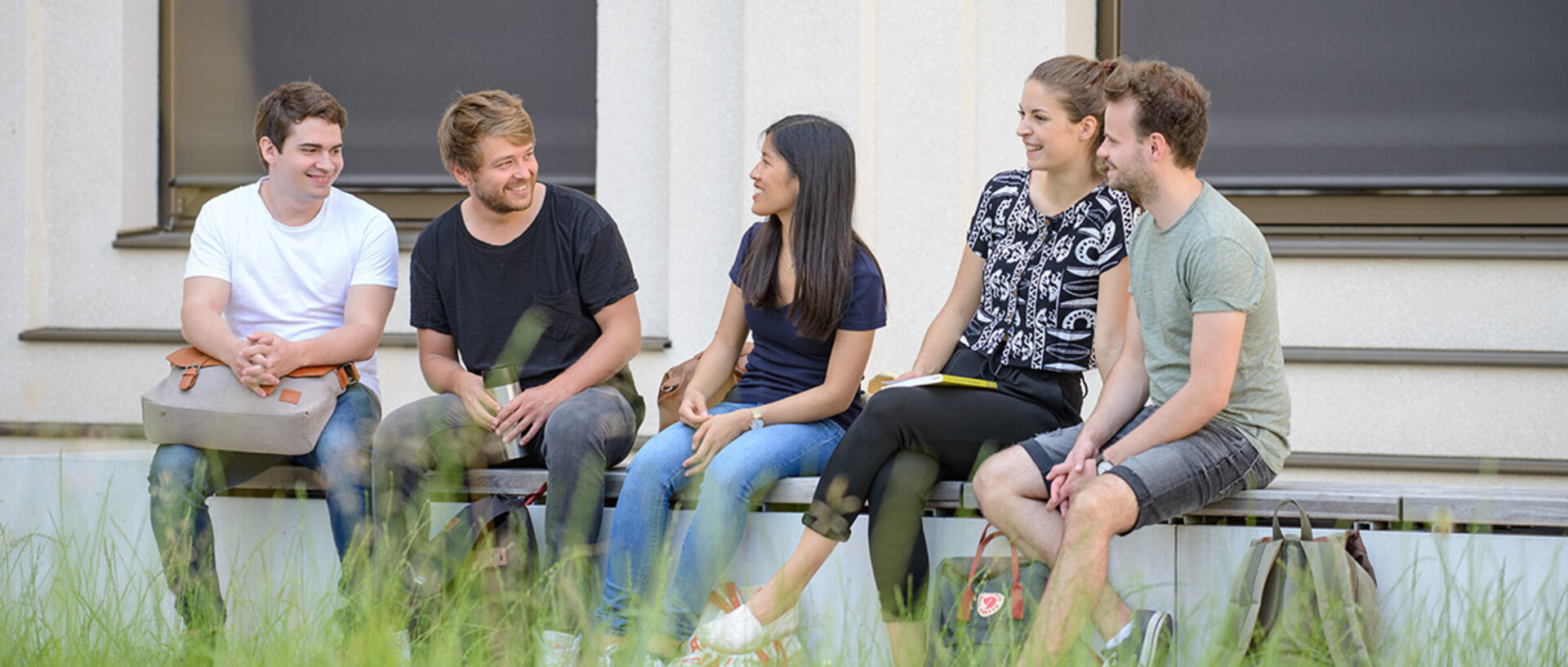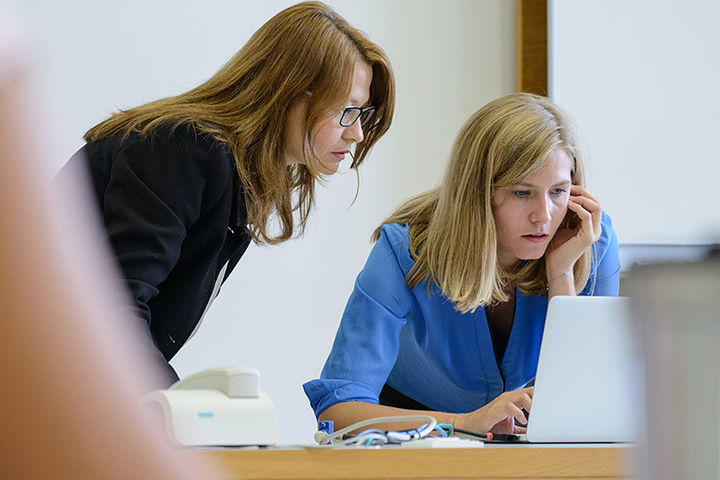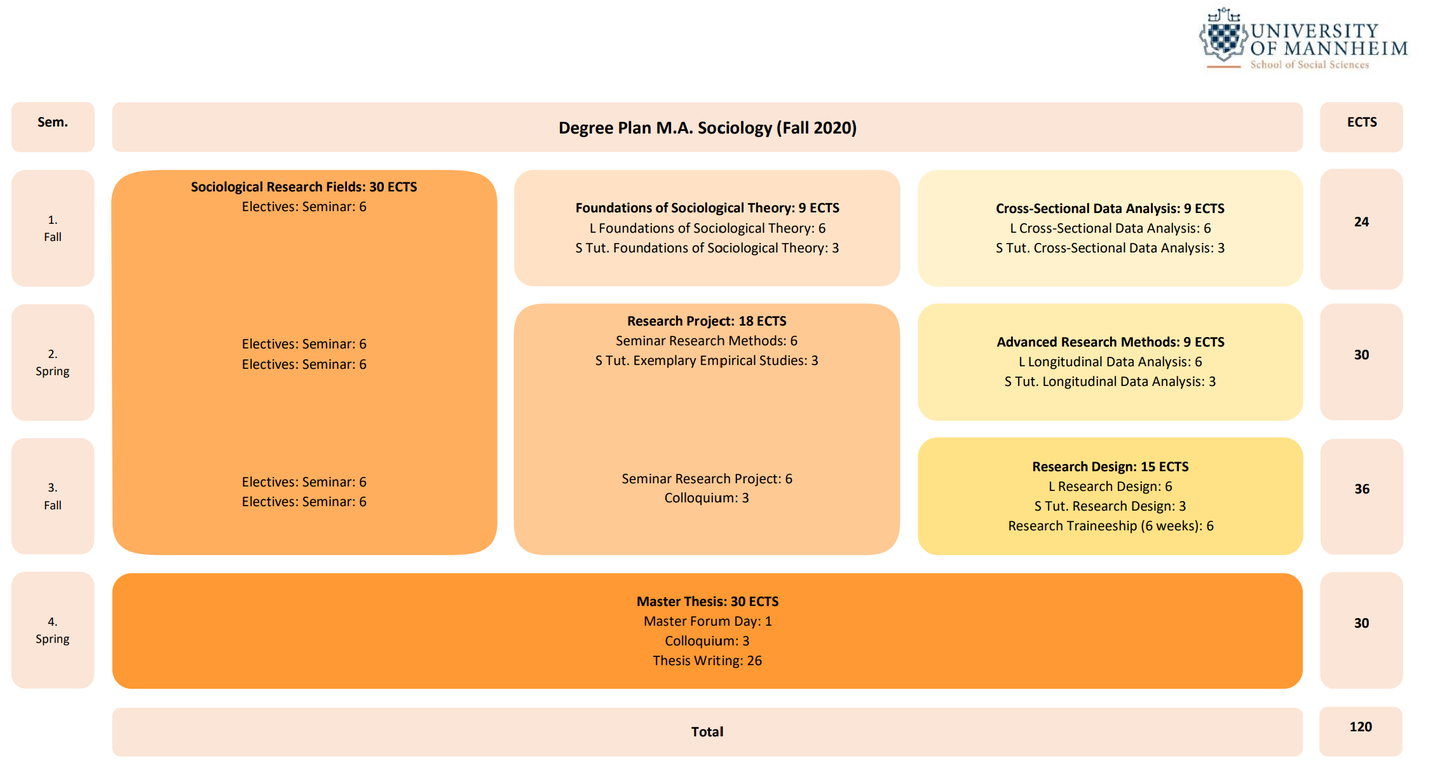Study Sociology in Mannheim and Become a Data Analysis Expert
Research oriented and international
The master's program in Sociology offered by the School of Social Sciences provides students with the opportunity to study in an international environment at a renowned university. The program, with a duration of two years, is research oriented and builds on the School's strength in empirical-analytical approaches, particularly in quantitative methods and comparative research. The main research topics include Family, Education & Work, Migration & Integration, Economy & Welfare State, and Social Inequality. All classes are taught in English. According to the THE Ranking 2022, the University of Mannheim is the best German university in the Social Sciences.
What our students say about us
7 reasons for pursuing your M.A. in Sociology in Mannheim
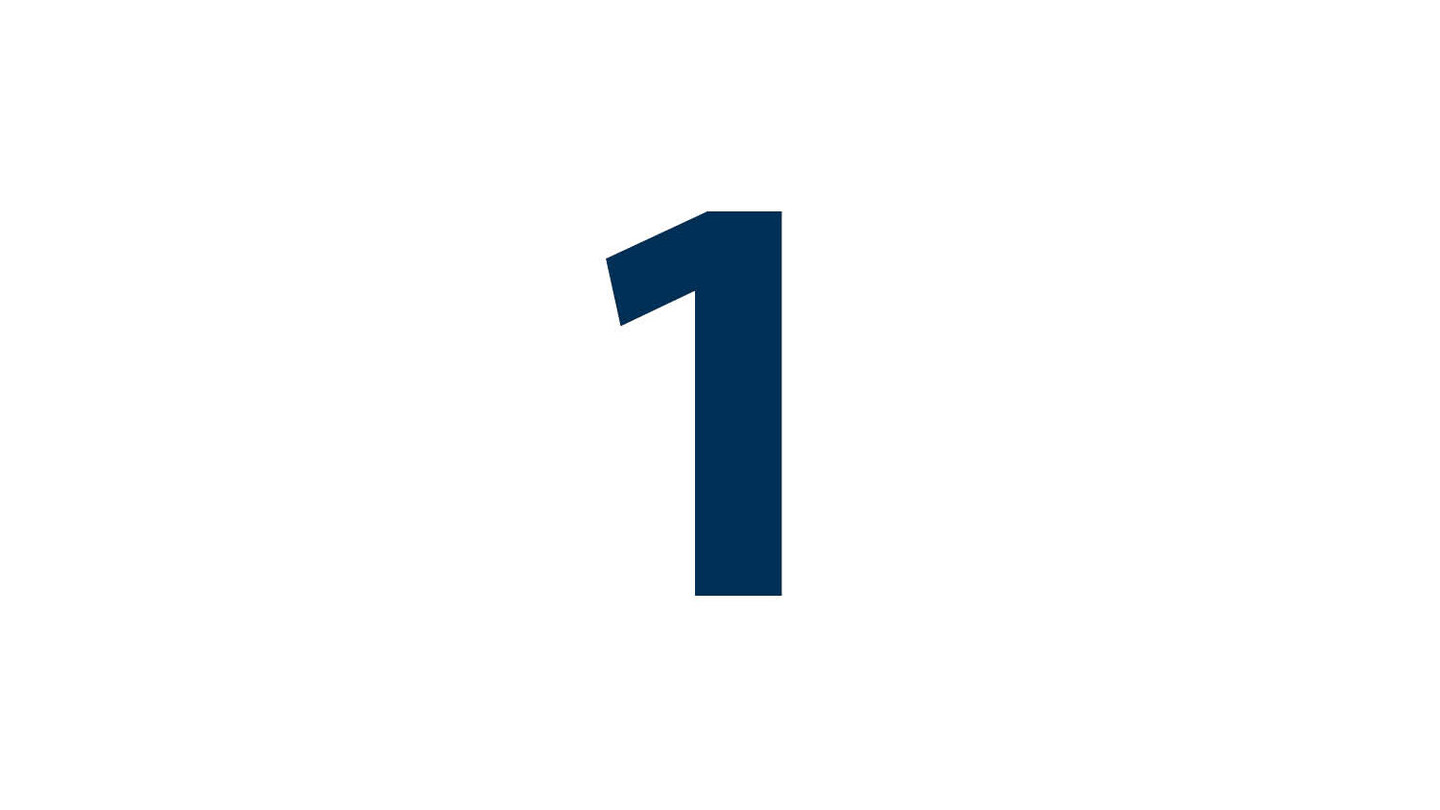
Best German university in Social Sciences (THE Ranking 2022)

The program builds on the School‘s strength in empirical-analytical approaches, quantitative methods, and comparative research

International campus: academic calendar aligned with the international academic year, large international group of students, and renowned international researchers, professors, and teachers
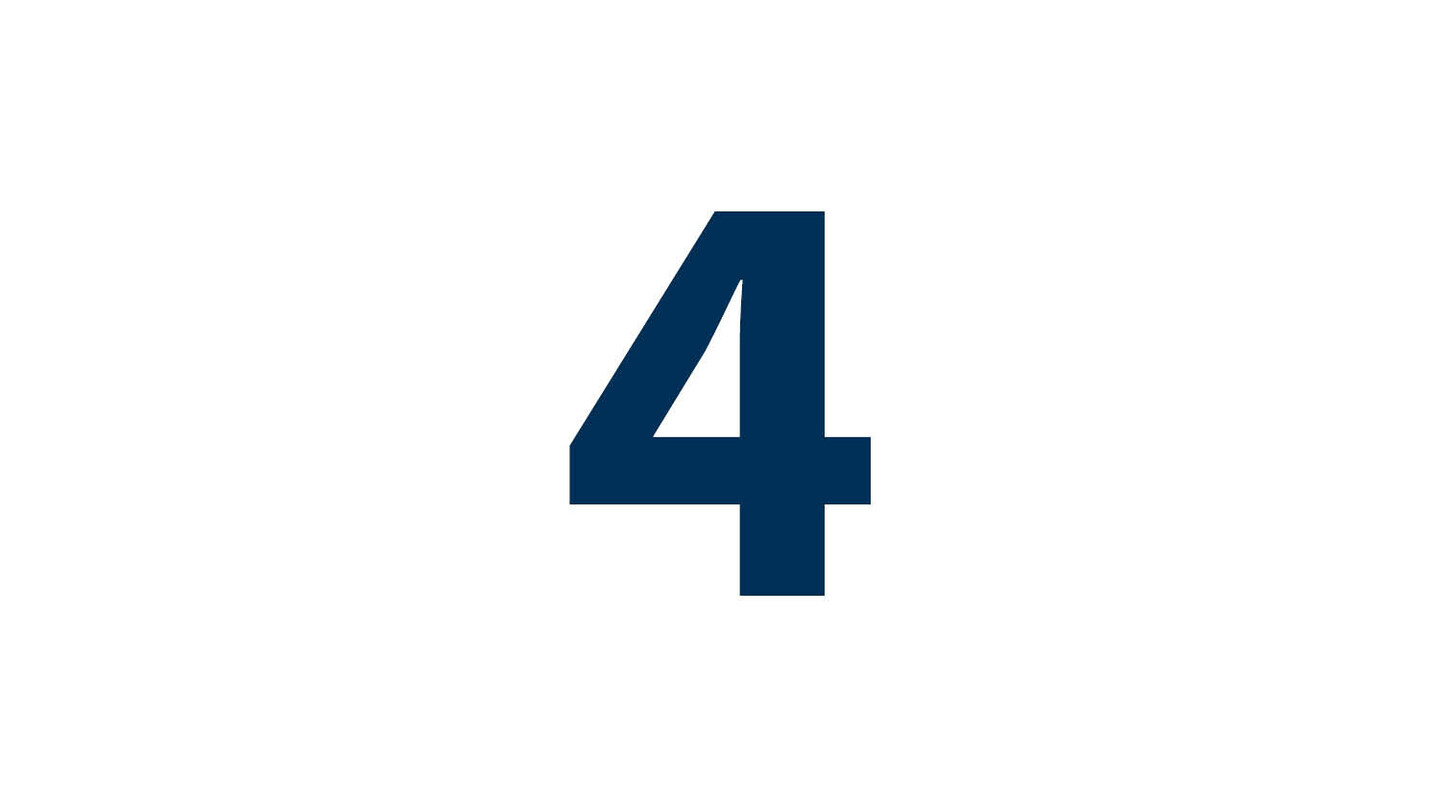
Close relationship with the GESIS Leibniz Institute for the Social Sciences and the Mannheim Centre for European Social Research (MZES), the largest research institution for social sciences at a German university
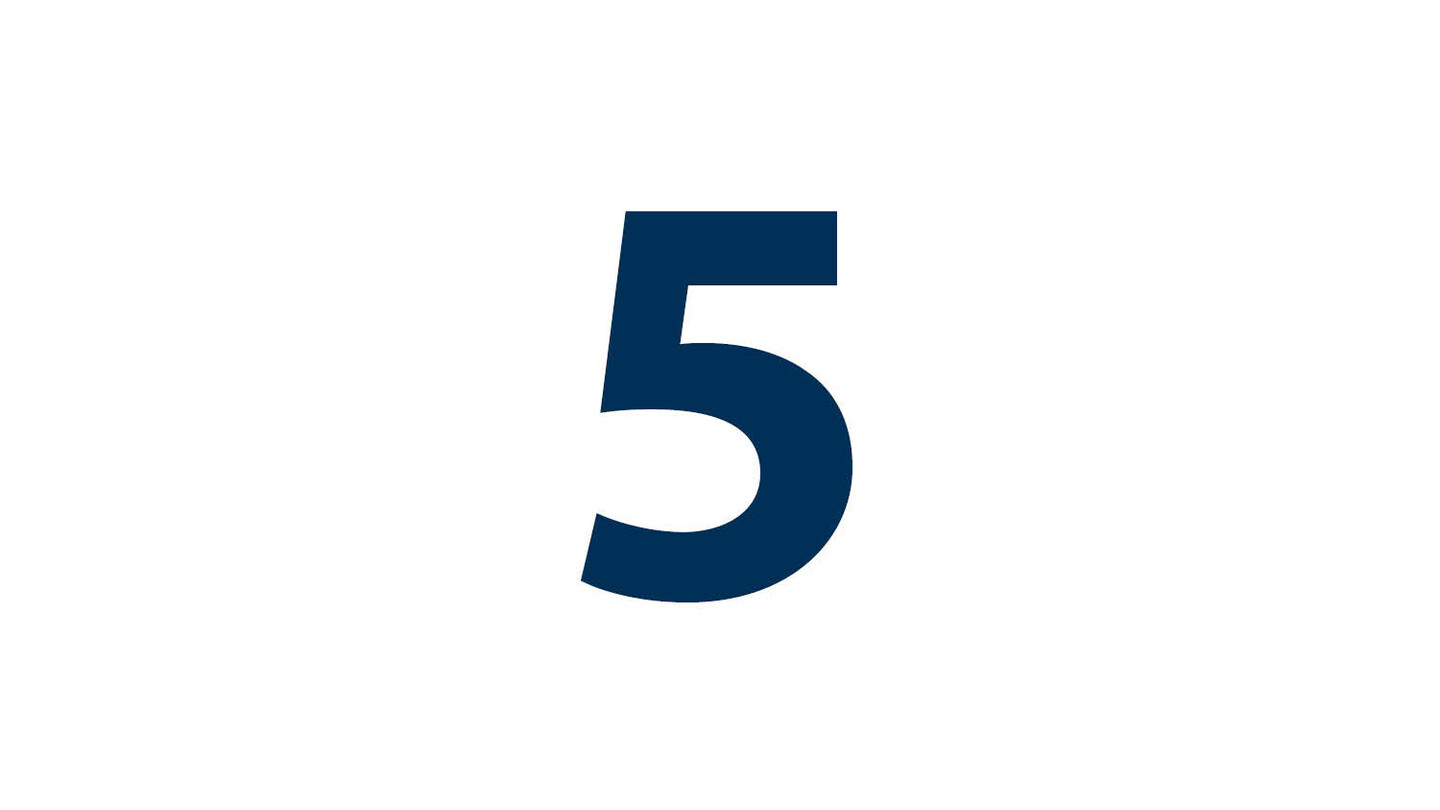
Opportunity to study abroad at one of our renowned partner universities worldwide, e.g. Indiana University, University of Haifa, University of Toronto, University of Bergen

Career support through the School's Internship Office: you can be involved in a research project as a student assistant or as an intern and gain work experience while increasing your income
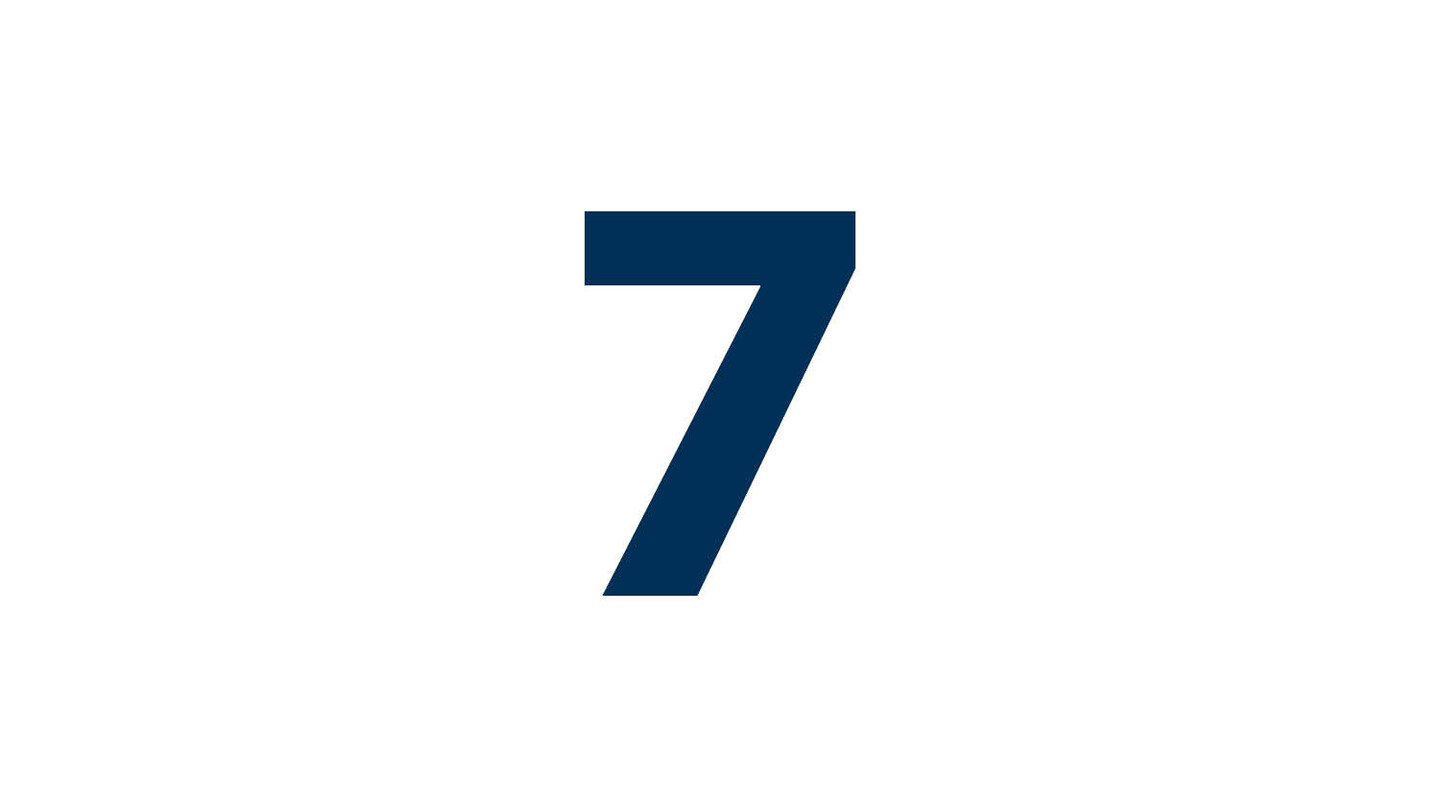
Mannheim is a vibrant city, located in the Rhine-Neckar metropolitan region. It is home to over 8,000 businesses, including several successful international companies, such as SAP and BASF
The degree program
Sociological Research Fields
Within the module Sociological Research Fields, you may choose five elective seminars (1st – 3rd semester) from different areas of concentration, such as Social Inequality & Stratification, Sociology of Migration, Comparative Welfare State Analysis, Labor Relations, Organizational Theory, Networks & Segregation, Economic Sociology, Fertility & Family Formation, Sociology of Education, Labor Markets & Occupations or Ethnic Inequality & Segregation.
Foundations of Sociological Theory
The module Foundations of Sociological Theory (1st semester) covers central aspects of sociological theory development and its foundations based on scientific theory. It offers an overview of the methodology of sociological explanations and the central, general components of sociological theories in research.
Cross-Sectional Data Analysis
In Cross-Sectional Data Analysis (1st semester), procedures for cross-sectional regression analysis (linear and categorical) are covered at an advanced level.
Advanced Research Methods
The module Advanced Research Methods (2nd semester) consists of a lecture and an exercise course. While students are taught how to analyze event history data and panel data during the lecture, they learn practical research methods using secondary data and information from other sources during the exercise course.
Research Design
The module Research Design (3rd semester) encourages students to develop a suitable research design for a specific research question (particularly with regard to the master's thesis), and to select and use available resources. A mandatory research internship is designed to offer hands-on experience in empirical research. Students may substitute the internship with attending a summer school program or working as a student assistant. Our Internship Office will assist students in finding internship positions and summer school programs that are in line with their interests.
Research Project
During the Research Project (2nd + 3rd semester), students first attend the Seminar in Research Methods. In the seminar, they will deepen and extend their knowledge of advanced methods of empirical social research, preparing them for the subsequent Research Project Seminar. During the exercise course in Exemplary Empirical Studies, explanation approaches are evaluated using exemplary new publications, and formal and stylistic standards for academic texts are taught. In the concluding Research Project Seminar, students prepare an empirical-analytical study in a focus area of sociological research.
Master's Thesis
Students complete their master's thesis during their fourth semester. The thesis is expected to have the format of a research article suitable for submission to an academic journal in the social sciences. Research questions, research designs, and initial empirical findings are presented during the Master's Forum Day. While they write their master's thesis, students also attend a colloquium. Our school is deeply committed to mentoring students as they take this important step toward a successful academic career.
Degree plan and module catalog
Application
Admission requirements
Our goal is to accept qualified and motivated students. Applications therefore undergo a selection process that includes the following selection criteria:
- Completion of a bachelor in Social Sciences (in particular sociology, political science, psychology or media and communication studies) or business administration or economics, or a degree recognized as equivalent by the selection committee, completed with a grade of “good” or better (equivalent to the German grade of 2.5) at a German higher education institution or abroad (also Berufsakademie) and corresponding to at least 180 ECTS credits or a standard period of study of at least three years. If you have not yet completed your bachelor's program by the time of application, you must submit a current transcript of records proving you have obtained at least 130 ECTS credits (or equivalent). Your admission will be based on this document and is subject to receipt of your degree certificate by mid-October at the latest.
- Good grades (or better) from the first degree (at least average grade 2.5) in the areas of quantitative methods, empirical social research, statistics or mathematics (at least 24 ECTS). [Subject to the approval of the university committees, which will meet on 19 March2025.]
- Quantitative thesis are counted with a maximum of 6 ECTS credits towards the required 24 ECTS credits; crediting also requires a certificate (PDF, 71 kB) from the thesis supervisor confirming the empirical-quantitative nature of the thesis.
Good English language skills certified by a higher education entrance qualification from a school with English as the language of instruction (e.g. A Levels) or a bachelor's degree from a higher education institution with English as the language of instruction and examination. Alternatively, one of the following language tests is required:
- Test of English as a Foreign Language – Internet-Based Test (TOEFL iBT) with a score of at least 90 points
- The European Language Certificate (telc) -English University with Level C or better
- International English Language Testing System – Academic Test (IELTS) with an overall band score of at least 6.5
- Certificate of Proficiency in English (CPE) with at least Level C
- Certificate in Advanced English (CAE) with at least Level C
- Continuous attendance of English classes throughout the German secondary school education with a minimum average of 11 points; the proof must not be older than five years
- Language certificat of the University of Mannheim Service and Marketing GmbH with at least (language) level C1 in the areas of Listening Comprehension, Writing, Speaking and Reading Comprehension
Grades obtained by international students will be transferred to the German grading system by using the Bavarian Formula.
If you fulfill these admission requirements, your application will be taken into further consideration.
You may also take a look at the official selection statutes (PDF) (in German). [The selection statutes linked here doesn’t contain the changes listed on this website, as these will only be incorporated into the selection statutes after approval by the university committees.]
Selection statutes (in English: not legally binding) (PDF, 239 kB)
How to apply
This year, subject to the approval of the committees and bodies, the application period starts on 01 April and ends on 15 May. The Admissions Office is the central office for all applicants (German as well as foreign applicants).
You will only need to apply online
Applicants are required to submit certified copies of official documents, such as the university entrance qualification or the bachelor's degree certificate, as specified in the online application. International guidelines for grading standards will be applied.
Attached to the application form for admission, you will find a checklist that will help you compile all documents. Please read this list carefully since incomplete applications have to be excluded from the admissions process.
Please note:
If you have not yet been awarded your bachelor's degree by the time of application, you should submit a current transcript of records.
English language certificates may also be handed in later, until 15 August at the latest.
The International Office also provides a variety of information for international degree-seeking students on its website.
The Admissions Office can be contacted via e-mail or phone (+49 621/
181-2222). What happens after you have applied
Usually, applicants to a master’s program receive the decision shortly after the close of the deadline.
International students: If you wish to accept your offer, please confirm the Declaration of Acceptance. Afterwards, you will receive an e-mail containing your log-in details for myUniMA – an online portal that provides you with comprehensive information on enrollment. Furthermore, it contains information on visas as well as on accommodation.
Further information & downloads
Studying in Germany: information for international students and their parents
The German Academic Exchange Service (DAAD) provides a lot of information for international students on their website as well as in their brochures for international students and their parents.
DAAD Germany Scholarship Database
Doctoral studies in Mannheim
The Center for Doctoral Studies in Social and Behavioral Sciences (CDSS) offers doctoral programs in Political Science, Psychology, and Sociology in close collaboration with the School of Social Sciences at the University of Mannheim. Admission is based on merit and open to excellent candidates holding either a research-oriented bachelor‘s or a master‘s degree. Students admitted to one of the programs receive a scholarship and there is no tuition fee.
Fast track your doctoral degree
Students interested in pursuing a doctoral degree at the CDSS have the opportunity to apply for 'Associate Membership' in the second year of their master's program. Successful applicants receive a 'Qualification Scholarship' and application is open to all second-year master's students. Calls for application are announced in spring.
Individual doctoral studies
In addition to the structured doctoral program offered by the GESS – CDSS, the School of Social Sciences also provides students with the opportunity to acquire a doctoral degree under the supervision of a member of the School. Prospective doctoral students interested in this alternative should consult the job announcements of the School of Social Sciences and its affiliated research institutes or consult a member of the School that might serve as a potential supervisor for the doctoral dissertation project.
Career training step by step
The University of Mannheim wants to support you in preparing and planning your career. As part of the pilot project STEP by STEP, we are offering workshops and information events to prepare you for your entry into the German labor market.
Services for students
Any questions? We're happy to help you!
The program managers are happy to answer any questions regarding the master's program (degree plan, selection of courses, structure and progress of your studies). For any questions relating to admission or application, please contact the Admissions Office.

Dr. Claudia Eckhardt-Kamps (she/her)
School of Social Sciences
A 5, 6
Building A – Room A 417
68159 Mannheim
Please note: Only online consultations are offered currently. Please make an appointment at https://www.sowi.uni-mannheim.de/online-beratung/claudia-eckhardt-kamps/
Admissions Office
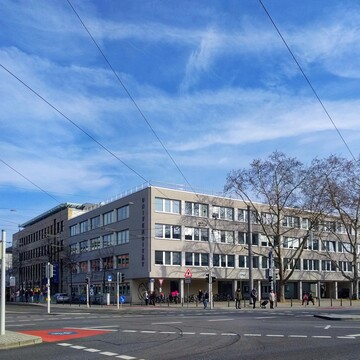 Credit: Anna Logue
Credit: Anna LogueAdmissions Office
University of Mannheim
L 1, 1 – Room 157, 158
68161 MannheimAdvising for international students
Team International Degree-Seeking Students
University of Mannheim
Division II – Student Affairs
International Office
L 1, 1 – Room 108/109
68161 MannheimE-mail: degreeseekingsuni-mannheim.deConsultation hour(s):
Book an appointment for an individual consultation:
https://www.uni-mannheim.de/en/about/centers-institutions-affiliates-and-partners/international-office/consultation-hours-international-degree-seeking-students/Opening hours:
Visit our offices without an appointment on Tuesdays from 9–11 a.m. (open office hours).Doctoral studies
The Center for Doctoral Studies in Social and Behavioral Sciences (CDSS) administers doctoral programs in Political Science, Psychology, and Sociology in close collaboration with the School of Social Sciences at the University of Mannheim.
